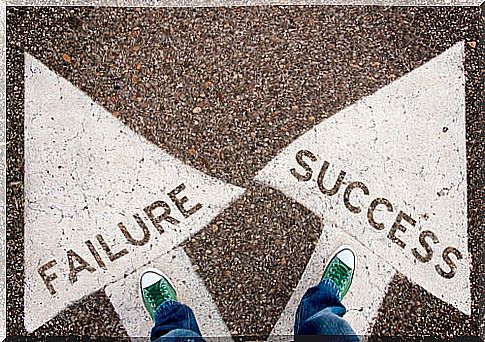Do You Learn More From Success Or Failure?

JK Rowling worked as a secretary in London, but had always dreamed of quitting her job and writing. He secretly wrote in his office and imagined stories of a young wizard named Harry Potter. Her bosses got tired and fired her. The severance pay allowed him to support himself and write a book that would become one of the best-selling books in history. But did you learn from success or failure?
In recent years , the importance of failure has been praised as a form of learning and self-improvement, but success also teaches and reflects in our memory the sometimes tortuous path that we have traveled to achieve it. In reality, both success and failure are a lesson in themselves.
On the other hand, a cultural aspect also intervenes in the vision of success and failure. In Spain there is a great fear, in general, of error, of failure. However, in other countries, such as the United States, failure is not frowned upon, quite the contrary, it is considered a very valuable experience to learn.
What is learned from success and failure
Both are good tools for learning, but in reality we must be very attentive because what is learned is from experience. That is, it is necessary to pay attention to what has happened, analyze it and draw conclusions. From failure you learn to be humble, to analyze well the different variants that intervene in each situation, to try not to repeat the same mistake, to know that you can move on despite failure.

However, different lessons can be learned from success. Above all, from success you learn the path that has been followed to achieve it. Thus, it must be borne in mind that there are no general rules. There will be guidelines that can help us but each person lives and acts on a very different plane with respect to other people, so what in one case has worked, in another may be a failure.
Success leads to success
Research by Mark H. Histed, Professor of Neurobiology at Harvard University, concludes that the brain is more receptive to learning after success than after failure. It seems that the emotion of joy that accompanies success reinforces the neural circuits that consolidate the memory of everything learned.
Brain cells and their interconnections fine-tune their configuration more precisely if the experience is successful. Therefore, we can conclude that success leads to success itself and that, in addition, recognition and celebration of it, as such, provokes emotions that reinforce the memory of the positive.
How to analyze failure
In the event that we fail in a personal or professional project, there comes a time when it is necessary to ask ourselves questions to understand what has happened and for what reason. That is the only way we can learn from a mistake. Some essential questions are:
Was the objective well defined?
One of the fundamental problems when starting a project, which can be from taking a trip to achieving the job of your dreams, is to define the objective correctly. If I want to take a trip, my goal cannot be: “This year I want to travel very far.” This objective lacks specificity: where do you want to travel, to which country and to which cities? When do you want to travel, on what date? How long will the trip take? who are you going to travel with? How are you going to pay for the trip?
In addition, to set a goal and not get frustrated, it is necessary to set short-term goals to gradually get closer to that goal. That is, it is about thinking about all the activities that I have to do to achieve that goal and setting a date for them. But in this sense, it is necessary to be realistic to avoid frustration and bear in mind that sometimes, along the way, things change and our objective can also change.
Has everything possible been done to achieve success?
We tend to complain many times, without wanting to see that what happens to us in life depends largely on ourselves. For this reason, every time we fail, it will be time to analyze whether everything we have done was all that was necessary, to see if we could have done something more and what that something else could be. It is not about torturing us, but about learning a lesson.
Are the consequences of failure exaggerated?
The answer is not simple, it depends on our genetics but also on our learning history. Having a childhood surrounded by people who influenced our mistakes is probably going to skew attention to that side of the scale. On the contrary, those who saw their successes recognized will tend more to pay attention to them.
black spots









